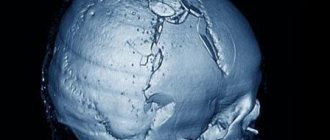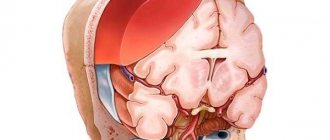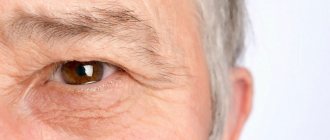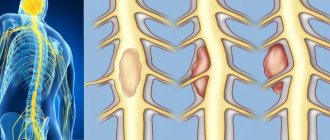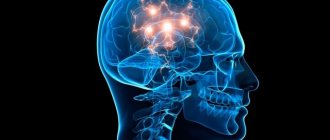Some people, under the influence of mental trauma and stress, experience disorders that manifest as mental problems. These deviations, varied in symptoms, are called reactive psychoses (RP) in psychiatry. Signs of disturbances can be short-term (up to a day) or long-term, lasting several months. Our mental health center “Leto” treats patients with this pathology. We provide them with the necessary level of attention, carry out diagnostics and individual therapy for the identified disease. If necessary, we provide consultation and support at home.
What provokes the development of reactive psychosis
Most often, RP manifests itself in situations that create life-threatening circumstances.
Psychiatrists identify the following reasons:
- Accidents and disasters.
- Natural disasters.
- Hostilities.
- Loss of loved ones.
- Financial desperate situations.
- Threats, psychophysical violence.
The severity of clinical manifestations of disorders depends on two factors:
- Features of the mental structure of the patient’s personality (character).
- The significance of the traumatic situation for a particular person.
Additional factors contribute to the development of reactive psychosis:
- Overwork.
- Insomnia.
- Traumatic brain injuries.
- Substance abuse.
- Transfer of severe infectious diseases and neurosomatic pathology.
The disease is especially severe in children and people entering menopause.
Etiological factors of pathology
Reactive paranoid is not just a consequence of a traumatic situation. It is preceded by a long state of uncertainty, when the misfortune has not yet happened, but, as it were, “presses” on the person and can overtake him at any moment. This condition is accompanied by a constant feeling of anxiety, which haunts the patient around the clock, preventing sleep and proper rest. Doing what he loves, a hobby, only briefly distracts him from restless thoughts, which is why he cannot concentrate and completely relax.
Usually the disorder occurs after:
- prolonged social isolation, for example, prolonged hospitalization, stay under investigation, in prison;
- experienced a natural disaster, fire;
- chronic fatigue due to constant lack of sleep, irregular work;
- excessive physical and nervous exhaustion associated with illness, intense exercise, and constant malnutrition;
- stay in a combat zone;
- relocation (we are talking about migration to another country, which causes problems with social and cultural adaptation).
The risk of this form of psychosis directly depends on your personality. As practice shows, reactive paranoid more often develops in individuals prone to hysterical reactions. They usually exaggerate the consequences of emerging problems, are sensitive to any, even fair, criticism, and are afraid of losing control over the situation. Such people are very suspicious, suspicious, dependent on the opinions of others, even strangers.
Classification of reactive psychoses
Psychotic disorders in this category are distinguished by their severity.
On this basis, doctors at our clinic identify the following forms:
- Acute (shock). There are two types: hypokinetic and hyperkinetic.
- Subacute.
- Lingering.
Determining the option is important for the doctors of the center due to the peculiarities of constructing a treatment plan, which differs for each type of disease.
Features of the clinical course
Acute reactive psychosis occurs over a period of several minutes to hours.
The hypokinetic form is characterized by:
- Sudden stuporous state.
- Numbness.
- Feeling of horror.
- Inability to move and speak.
Hyperkinetic occurs with:
- Motor and mental excitement.
- Chaotic and disordered movements.
Both forms are accompanied by:
- Twilight clouding of consciousness.
- Partial or complete loss of memory.
- Tachycardia and elevated blood pressure.
- Profuse sweating.
Most often, our doctors have to deal with subacute reactive psychoses.
They appear:
- Psychogenic depression with depression and increased anxiety. In other cases, with tearfulness, dissatisfaction,
- Hysterical variant , which is characterized by theatricality, affectation, demonstrative behavior, often with pseudo-suicidal attempts. This type of psychosis is manifested by multiple dominant syndromes: delusional fantasies, savagery, puerilism (childishness), Ganzer syndrome (mimorism) and others.
- Paranoid, accompanied by figurative delusions with elements of fears and perceptions of threats to one’s own life everywhere. It seems to the patient that everything around him is turned against him. Prying glances, whispers, etc.
- Stupor. In this case, inhibition of speech and movements dominates, which is layered with delirium, hysterical manifestations (stuttering, tremor), and hallucinations.
Protracted reactive psychoses are characterized by sluggish symptoms that last for months and years.
Due to their development, paranoid states are divided into three groups
- Endogenous. It is a manifestation of endogenous diseases: paranoid form of schizophrenia, schizoaffective disorder, delusional disorders, acute polymorphic psychotic disorders. The most specific for endogenous diseases is the paranoid state in Kandinsky-Clerambault syndrome.
- Exogenous (exogenous-organic). They develop as a result of damage to brain tissue by trauma, atrophic process, cerebral circulatory failure, neoplasms, etc. Involutional (or senile) paranoid is observed in older people and is accompanied by delusions of theft, impoverishment, or influence of loved ones.
- Reactive. Triggered by some external stressful event. Psychogenic paranoid occurs in response to mental trauma. For example, after a message that “You are invited to a conversation at the prosecutor’s office,” a person first begins to suspect some kind of danger unknown to him, and then, “having an epiphany,” he realizes that everything was done on purpose and he is the object of persecution. “Railway paranoid” has been observed in people during a long journey, when, against the background of insomnia, it begins to seem that they are being watched, pursued and hunted. Induced paranoid disorder is when a person is “infected with delusional ideas” of a loved one and begins to completely share them; this is one of the mechanisms of the existence of sects and terrorist organizations.
Special mention should be made of PARANOID personality disorder. This is a type of psychopathy (personality disorder), in which throughout a person’s life, such characteristics as suspicion, a tendency to complex and at the same time erroneous interpretations of events, stubbornness and categoricalness are observed.
In this case, there are no hallucinations and the condition does not reach the severity of psychosis with grossly impaired abnormal behavior. Such people have poor relationships with others and do not stay in one place of work for long. Over the course of life, these personality traits may strengthen or weaken.
The PARANOID form of schizophrenia should also be distinguished. This is the most common type of schizophrenia. This form of schizophrenia is characterized by exacerbations in the form of a full-blown paranoid syndrome with delusions and hallucinations and the gradual development of the so-called schizophrenic defect (lack of will, passivity, isolation, unemotionality).
Diagnostics
Establishing a diagnosis in our clinic is based on examination and interview of the patient, and the involvement of his relatives in the process. The doctor identifies the causative factor and establishes its connection with the detected symptoms.
The main diagnostic difficulty lies in differentiating reactive psychoses from:
- Schizophrenic disorders.
- Bipolar disorder.
- Complications associated with substance abuse.
- Psychogenic depression.
- Delirium characteristic of other diseases.
How to register for our mental health center
You should start by getting advice over the phone. To do this, dial the clinic’s phone number 8(969)060-93-93 . A multi-channel call center line will allow you to quickly connect with an operator. He will listen to you carefully, answer your questions, and give useful advice. He is making an appointment for a medical consultation. The dispatcher will provide information on the cost of diagnostic and treatment procedures. If hospitalization is necessary, you can reserve a place or the entire ward over the phone.
In our hospital we have the following options:
- Standard class (2-3-4 seats).
- Comfortable for 2 people.
- VIP, equipped for one client.
If there is a need, you can call a specialist to your home; we also provide the possibility of transfer and will deliver the patient to the hospital, if necessary, accompanied by a medical professional.
We inform you that we are subject to strict confidentiality. Your stay in our center is carried out in compliance with all rules of anonymity.
Subacute form
Symptoms develop gradually and last up to 10–14 days. Delirium of persecution dominates, which is why a person constantly looks around, wanting to discover “enemies”, expecting an attack. He can be on duty at the window or front door, or not leave the house at all. Gradually, acute delusional symptoms dull, but fear increases.
The patient wants to hide from ill-wishers, for example, he sells his home for next to nothing and moves to another city, changing his phone number, and finds an opportunity to forge documents. By the way, in such a state it is easier to persuade a patient to be hospitalized, arguing that no one will get to him in the hospital.
Housing paranoia is very common among older people. They are overwhelmed by ideas of persecution and harm, convinced that they are wanted to be killed in order to get their apartment or house. At the same time, any irritants are perceived very painfully: sounds of repairs, noisy parties with neighbors, barking dogs, etc. The patient associates these sounds with approaching danger.
Treatment of reactive psychoses
After an examination and conversation, our specialists offer patients a treatment plan. First of all, the question of where to undergo treatment is decided: inpatient or outpatient. In acute cases, pharmacotherapy is required.
The patient is prescribed:
- Neuroleptics.
- Tranquilizers.
- Antidepressants.
- Normotimics.
Antipsychotic therapy helps in both acute and subacute, protracted processes. The selection of drugs is especially important for pathologies that last a long time, both in adults and children. In this case, the selection and adjustment of pharmaceuticals is important for recovery. On this basis, it is necessary to visit a doctor even after discharge from the hospital. The specialist must correct any identified change in mental health.
In addition to specific psychotropic pharmacotherapy, clients are prescribed supportive and symptomatic treatment. Psychotherapy occupies a special place in the healing process.
Patients undergo:
- Individual and group psychocorrection.
- Hypnotherapy.
- Sessions for working through feelings, adapting to life conditions.
- Development of defense mechanisms based on the ability to control one’s emotions and thoughts. For this purpose, psychotherapists teach auto-training skills to those recovering.
- Cognitive behavioral psychotherapy.
- The author's methods of influencing consciousness, providing for adaptation and maintaining the adequacy of behavior under stressful conditions.
Psychotherapeutic methods are often combined with drug therapy. The prognosis after treatment is favorable in most cases. After discharge, medical and mental recovery benefits.
Acute psychogenic paranoid
Characteristic is the formation of simple but emotionally rich delusions, the content of which is directly related to traumatic events, and a constant feeling of fear. As a rule, delusional ideas of persecution with a plot of physical violence arise. Visual and auditory hallucinations are possible.
After a short prodromal period, the patient suddenly develops a feeling of mortal danger threatening him. They are convinced that they are surrounded by enemies who have already destroyed their entire family and close friends. Many people hear “sinister” threatening voices telling about all the details of the upcoming murder.
In this state, the patient cannot control himself. To escape from “pursuers” and hallucinations, he tries to escape and can jump out of a window, throw himself under a car, or commit suicide so as not to “be captured.”
Acute reactive paranoids also include:
- Wartime psychoses, in which the patient is constantly haunted by specific auditory illusions (sounds of gunfire and explosions, screams of the wounded). If a person managed to escape, obsessive ideas of self-blame are possible. He considers himself a deserter and a loser who “abandoned his own” for the sake of his own salvation.
- Situational paranoia, which usually occurs in public transport, which is why this syndrome is often called “transport” or “railroad”. The frightening environment of a large train station may act as a provoking factor: constant noise, crowds of people, an atmosphere of haste and uncertainty, unclear announcements through a loudspeaker. The patient begins to feel that those around him are looking at him somehow strangely, whispering and looking at each other, and are plotting a robbery or murder. The patient may offer money and valuables to other people, trying to “pay off” or jump out of a moving vehicle.
- Migration paranoid with a distinct fear of being judged due to ignorance of the language, local customs, manner of dressing, etc.
Cost of services
| CONSULTATIONS OF SPECIALISTS | |
| Initial consultation with a psychiatrist (60 min.) | 6,000 rub. |
| Repeated consultation | 5,000 rub. |
| Consultation with a psychiatrist-narcologist (60 min.) | 5,000 rub. |
| Consultation with a psychologist | 3,500 rub. |
| Consultation with Gromova E.V. (50 minutes) | 12,000 rub. |
| PSYCHOTHERAPY | |
| Psychotherapy (session) | 7,000 rub. |
| Psychotherapy (5 sessions) | 30,000 rub. |
| Psychotherapy (10 sessions) | 60,000 rub. |
| Group psychotherapy (3-7 people) | 3,500 rub. |
| Psychotherapy session with E.V. Gromova (50 minutes) | 12,000 rub. |
| TREATMENT IN A HOSPITAL | |
| Ward for 4 persons | 10,000 rub./day |
| Ward for 3 persons | 13,000 rub./day |
| Ward 1 bed VIP | 23,000 rub./day |
| Individual post | 5,000 rub. |
| PETE | 15,000 rub./day |
This list does not contain all prices for services provided by our clinic. The full price list can be found on the “Prices” , or by calling: 8(969)060-93-93. Initial consultation is FREE!

